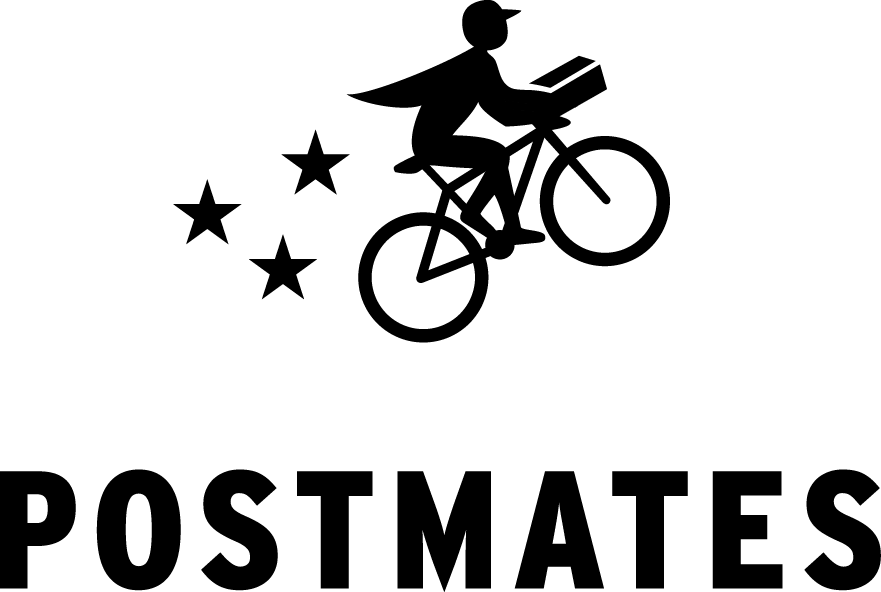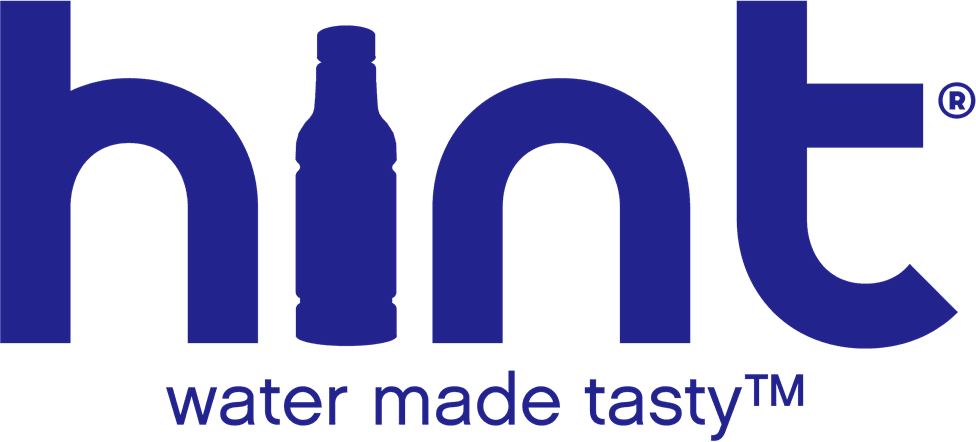ONLINE
The Restaurant
Of The Future
Online program from Silicon Valley for hospitality and restaurant executives
Enquire us for the Upcoming Program Dates
What Is An Online Immersion Program?
Billions of dollars of venture capital have flown into the restaurant tech sector in recent years, a phenomenon that speaks to the potential of technology to radically transform the experience of eating out. In fact, a great number of innovations have already taken place, across diverse areas such as mobile payments, customer relationship management, smart kitchens, reservation and review platforms and many others. In response to this intense period of innovation activity, we’ve seen the creation of a new ecosystem comprised of food tech accelerators and venture capitalists, digitally-savvy restaurants, and legacy players seeking to adapt.
Our immersion program will educate you in all of these trends, connect you with the companies pioneering groundbreaking solutions and inspire you to turn your own company into a leading innovator capable of long-term growth.
Restaurant Tech startup innovation map
What Will I Learn?
Our immersion program is made up of sessions with leading companies operating at the forefront of major trends in the restaurant tech space such as:

Software as a Service
Cloud-based software packages, or software-as-a-service (SaaS), are radically changing the way our restaurants, bars and cafes are run. SaaS startups serving the hospitality industry include Partender, for fast bar inventory, PayMyTab, a cloud platform covering several aspects of the hospitality trade from loyalty programs to payments, and EventSorbet, a SaaS solution for restaurants to generate leads.

Mobile
Mobile apps and platforms continue to spread in the restaurant industry, covering a variety of functions. Bluecart, for example, is built to streamline and modernize the wholesale procurement process for buyers and sellers. Allset, meanwhile, is an app for pre-ordering, and pre-paying for, meals to avoid wait times in restaurants, while Qless is a remote queuing system that means customers no longer need to stand in lines to wait for a table.

E-commerce
E-commerce for dining is a big industry in itself and a major site of innovation. Startups in this space include ChefMealKits, where users can buy meal kits from their favorite restaurants or chefs, and Eat Club, which is aimed at companies, allowing them to have food delivered from local restaurants through a web or mobile device. White-label platforms for restaurants to create and manage their own online ordering and delivery systems are also seeing significant growth. Examples include ChowNow, an online ordering platform that provides restaurants with a way to offer online ordering to customers via either Facebook pages, branded mobile apps or existing websites.

Food Delivery
Going hand-in-hand with e-commerce are food delivery startups such as Coolbuck, an online restaurant delivering meals prepared in a central kitchen, and JoyRun, a peer-to-peer platform for community-based group deliveries. Doordash, meanwhile, which has raised some $2 billion in venture funding, provides on-demand food delivery from local restaurants.
Program Agenda
Get the direct access to the most transformative technologies that will help you lead your organization through turbulent time:
Theme 1
RESTAURANT AND HOSPITALITY: MAJOR TRENDS
Session 1: The Platformification of Dining and Hospitality
Platformification is sweeping across all industries, restaurants and food service included. This means diners can now go online to connect to a huge array of eateries to book tables, deliveries and much more. Other options in the sector include platforms to connect with locals who host you in their homes for authentic home-cooked meals. Software companies have made these experiences possible through the power of platforms. To find out how this trend will grow in the future and what it’s impact will be on restaurants and hospitality, this session connects participants to a leading platform innovator.
Session 2: Food Delivery Transformed
Today, diners who do not want to go out to eat can order in from virtually anywhere, even from restaurants that do not deliver. That innovation comes courtesy of tech companies leveraging web and mobile apps to fill the gap. Stay-at-home diners now have the option to order a pizza from a robotics company that operates no restaurants. Instead, the company runs trucks that both bake the pizza in a smart oven, and deliver it. This is just the beginning of the technological disruption of food delivery. Find out what will come next in this session as you meet a company leading the change sweeping the sector.
Session 3: Robots and the 21st Century Kitchen
The robots are not coming, they are already here. At least, when it comes to eating. Today smart machines can make us burgers, coffee and pizza. For now, they are confined to a small number of eateries in the San Francisco Bay Area, but is a future where robots are in every kitchen, domestic and commercial, far away? Find out in this session as you meet one of the world’s most innovative companies in food and beverage robotics.
Session 4: Building Omnichannel Customer Experiences
For a majority of customers engagement with restaurants today comes first via an online channel such as a social media post, a web page or a mobile app. This move to digital platforms has catalysed the industry to rethink the customer experience. They are being aided in this by a new wave of technology companies that are expert in providing seamless, omnichannel experiences. In this session participants will meet one of the innovators moving the food service industry toward an ever-more individualized model of commerce. They will learn what the impact of hyper-personalized customer experiences will be on the future of hospitality.
Sessions led by:
Theme 2
FOOD SERVICE LOGISTICS
Session 1: The Fresh Food Supply Chain
The growing demand for fresh produce, regardless of the season, has pushed entrepreneurs to come up with novel solutions to the problem of transporting perishable food without waste. Many have risen to the challenge, with businesses using new approaches to both hardware and software to ensure produce reaches its destination in optimal condition. How will this impact the food service industry? This session will answer that question as participants learn about the disruptive aspirations of the companies working to change the fresh food supply chain through meeting one of the sector’s leading innovators.
Session 2: Food Traceability and Transparency
In the restaurant and hospitality business, food safety is a fundamental aim. It is now possible to achieve that goal with the help of emerging technologies, as innovative companies deploy AI, blockchain and big data to build new tools for compliance and traceability.These platforms enhance visibility and provide predictive insights across supply chains. To gain insight into how this digital disruption will impact the food service sector, this session connects participants to a leading innovator in the space.
Session 3: Digital Supply Chain Management
It was not so long ago that moving raw materials and finished goods between suppliers, manufacturers and retailers was a task characterized by labour-intensive, manual processes. Since those early days supply chain and logistics have undergone numerous transformations. In our current era Silicon Valley companies are deploying AI, blockchain and other disruptive technologies to recreate the supply chain anew. In this session participants will meet a leading supply chain innovator in order to see what this digital transformation means for the future of the food service industry.
Session 4: Self-Driving Vehicles and Logistics Disruption
The art and science of moving produce “from farm to fork” along the food supply chain is on the verge of a major disruption. As Silicon Valley companies vie to become the first to build self-driving trucks, the restaurant and hospitality sector is preparing for this coming world of autonomous mobility. In this session participants will learn what this future of logistics looks like when autonomous trucking becomes commonplace; participants will meet a company undertaking disruptive work in the market for self-driving.
Sessions led by:
Theme 3
THE ON-PREMISE EXPERIENCE
Session 1: Transforming the Restaurant Space
The rise of online ordering, delivery services and mobile apps does not mean eating out is dead. Far from it, in fact, with patronizing restaurants among the top sectors for consumer disposable income.That’s why amid digital disruption tech companies are still concentrating on optimizing the dining experience through AI, automation and advanced analytics. In this session participants will meet a company reimagining the physical restaurant in order to gain insight into what the future of eating out will look like.
Session 2: Applying Location-Based Services to Dining
Now that we live in an era of mobile information, more and more companies are building location-based services into their smartphone apps and online experiences. Technology companies are driving this trend as they help hospitality providers enhance location-based mobile engagement and create new paths to purchase. The future of location-based services is set to be dominated by their application in indoor environments and by fusions with other emerging technologies such as artificial intelligence. To learn about this future, this session will connect participants to a leading location-based services innovator.
Session 3: Digital Tools for Frontline Staff
Communications and scheduling applications are appearing at a high rate in the tech ecosystem, as more and more companies reap the benefits of ensuring staff are well-informed, motivated and equipped with all the information they need to perform. Many of the enterprises operating in this space design their products specifically for the millions of non-desk workers who do not have ready access to effective communication technology on the job, food service staff prominent among them. In this session attendees will meet an innovator in scheduling and collaboration tools to gain insight into where the future of the sector is heading and how it can transform the hospitality industry.
Session 4: The Continuing Evolution of the Payments Ecosystem
Change in the payments space has proceeded at a rapid pace, bringing us up to the present moment where mobile payments via NFC and facial recognition are commonplace. What’s next in this evolution of payments? In this session participants will meet a company building the future of payments to learn the answer to that question and how it will impact the food service and hospitality sectors.
Sessions led by:
Theme 4
NEW WAYS TO EAT AND DRINK
Session 1: The Rise of Plant-Based Meat and Diary
Alternatives to traditional meat and dairy products are flooding the market. This comes as entrepreneurs respond to the momentum of recent years in consumer trends such as ethical buying and environmental sustainability. The businesses in this new wave of vegan eating produce plant-based meat and fish alternatives made from seaweed and algae. In this session participants will learn what the future holds for plant-based meat and dairy alternatives and find out what the implications are for food service. Participants will meet a leading innovator in the space.
Session 2: Wellness In Focus
A catch-all term encompassing a wide range of industries from beauty to weight loss, wellness is a trend that is on the rise. Its growing popularity has been put down to a turn by consumers toward products and experiences that promote both mental and physical well-being. Entrepreneurs and established companies alike are responding to this demand, bringing to market innovative products and services that include everything from wearable health monitors to meal replacement drinks and alternative foods. This session will take participants on a deep dive into wellness, connecting them with an innovator in the space to hear what this trend means for the future of dining.
Session 3: Meal Kit Delivery: Threat or Opportunity?
The food service and hospitality sector is facing a new form of competition in meal kits. The companies behind these services deliver ingredients and even still-hot-from-the-oven meals to users homes. Will this cut into restaurant revenues or is it a disruption that can be turned into a spur to innovate? Participants will hear the answer to that question in this session as they meet a leader from the meal kit delivery service niche.
Session 4: Innovation in Beverages
Cannabis-infused drinks, direct-to-consumer online wine emporiums, subscription service coffee and non-dairy milk: these are all growing trends in a beverage space rich with innovation. In this session participants will meet a company leading the sector with new and novel solutions in order to learn how disruption in beverages will impact the future of food service and hospitality.
Sessions led by:
Theme 5
ADJACENT INNOVATION
Session 1: New Solutions to Energy Efficiency
Calls for greater energy efficiency can be dated back to the 1970s. Today those calls continue, arguably with greater volume and urgency than ever before. Recognizing that demand, Silicon Valley technology companies are among those proposing radical solutions in areas such as computing, construction and residential and commercial property. To learn about those solutions and find out how the drive for energy efficiency will impact the future of dining and hospitality, this session will connect participants to a disruptor in the energy efficiency sector.
Session 2: Disrupting Insurance with Insurtechs
The process of insuring against risk is changing rapidly thanks to insurtechs. These innovative companies are leveraging emerging technologies such as AI and ML to offer a data-driven approach that promises to make insurance a predictive, proactive service. The restaurant and hospitality sector, no less than any other, will be impacted by this in a big way. In this session attendees will take a deep dive into the future of insurance as they meet one of the companies disrupting the sector.
Session 3: The Digital Transformation Property Rental
A fresh batch of digital-first companies is doing away with the paper forms, phone calls and bureaucratic processes that once characterized the rental sector. These businesses are on a mission to bring simplicity, transparency and convenience to the process. They use seamless mobile and desktop experiences, artificial intelligence and new business models to offer tenants and landlords a streamlined digital alternative to traditional ways of renting property, both residential and commercial. In this session participants will learn about this revolution in rental property as they meet a company leading the disruption of the industry.
Session 4: The Digital Transformation of Farming
In agriculture, spreadsheets are out and mobile, data-driven management applications are in. A range of digital platforms are now seeking to help farmers easily manage all their field information, make strategic decisions and practice precision agriculture. What does this mean for the food service industry not only today but five, or ten years down the line? In this session participants will hear the answers to those questions. They will learn how digital technologies are transforming primary-stage food production as they meet a company leading innovation in the sector.
Sessions led by:
Interested In Online Custom Programs?
For groups of 20+ participants, we can work with you to develop a custom online program around your interests and strategic goals
Personalized and Interactive
Direct Contact with Experts
Access more than 15 hours of live presentation plus additional materials and recordings on your schedule. Drill down with your mentors on things that matter most to you.
Dedicated SVIC Assistant
Silicon Valley Innovation Center provides a personal assistant to participants for the duration of all programs, ensuring a real white-glove experience.
World-Wide
Community
Program participants will uncover new connections and business development opportunities, both within Silicon Valley and globally with fellow course participants.
What Is Included
schedule
All sessions are held 8 am - 11 am (PST)
- Week 1: Friday (Sessions 1, 2)
- Week 2: Tuesday (Sessions 3, 4); Friday (Sessions 5, 6 )
- Week 3: Tuesday (Sessions 7, 8); Friday (Sessions 9, 10 )
The most convenient and impactful way to learn:
- Live Sessions with Direct Q&A through a virtual platform
- On-Demand Access to all materials for 12 months
- Access to a private SVIC Facebook group designed for business executives
CERTIFICATE OF COMPLETION
Get a verifiable knowledge and strengthen your resume.
What Companies Will Participate?
Get your answers and action plan from most impactful companies in Silicon Valley:

Food & Bar Inventory: From 6 Hours to 15 Minutes

PayMyTab is a SaaS cloud platform for the hospitality industry. Combines Payments, Mobile, Loyalty and CRM seamlessly with existing POS

EventSorbet is an end-to-end SaaS solution for restaurants to generate incremental and substantial sales.

Dine wait free at restaurants you love. Live in NYC, LA, SF, Chicago, Houston, and more. Dine-in and Pickup.

ChefMealKits is an e-commerce platform that allows you to buy meal kits from your favorite restaurants and chefs.

EAT Club is a food technology company allowing offices to order and get food delivered from local restaurants via the web or mobile devices.

ChowNow powers branded online ordering systems for independent restaurants through the restaurants’ own websites.

DoorDash enables small businesses to provide its customers with local delivery services.

OpenTable allows users to discover and make online restaurant reservations and read reviews from other diners.

Plate IQ saves restaurants time and money by automating their invoice processing and accounts payable.

Amazon is an international e-commerce website for consumers, sellers, and content creators.
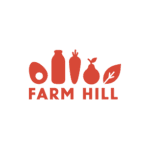
Farm Hill provides a fresh and healthy meal delivery service.

Forkspot is a dual sided platform that helps restaurants grow.

EatWith is a community that invites people to dine in homes, connect with hosts, share stories and enjoy homemade cuisine.

ZeroCater is a provider of office meals and snacks, bringing employees together to build culture and foster community.

Innit is an "eating technology" company that has developed the world's first Connected Food Platform.
What Companies Will Participate ?
Get your answers and action plan from most impactful companies in Silicon Valley:

Food & Bar Inventory: From 6 Hours to 15 Minutes
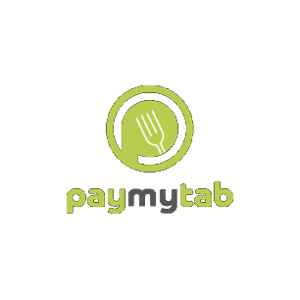
PayMyTab is a SaaS cloud platform for the hospitality industry. Combines Payments, Mobile, Loyalty and CRM seamlessly with existing POS

EventSorbet is an end-to-end SaaS solution for restaurants to generate incremental and substantial sales.

BlueCart™ is a web and mobile platform built to streamline and modernize the wholesale procurement process for buyers and sellers.

Dine wait free at restaurants you love. Live in NYC, LA, SF, Chicago, Houston, and more. Dine-in and Pickup.

QLess is a platform that provides mobile, remote and interactive queueing; analytics; real-time CRM; and marketing.

ChefMealKits is an e-commerce platform that allows you to buy meal kits from your favorite restaurants and chefs.

EAT Club is a food technology company allowing offices to order and get food delivered from local restaurants via the web or mobile devices.

ChowNow powers branded online ordering systems for independent restaurants through the restaurants’ own websites.

Coolbuck is the first online restaurant. We deliver delicious & healthy foods to diners from our central kitchen. We offer a wide cuisine.

JoyRun is a community based delivery company.
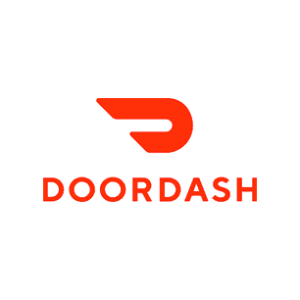
DoorDash enables small businesses to provide its customers with local delivery services.

Presto digitizes the dining room for restaurants and makes them smarter and more profitable.
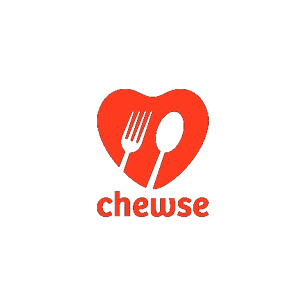
Chewse is a platform that allows companies to handle their food catering and workplace culture needs.

Creator is a collective of food lovers and engineers with decades of robotics and restaurant experience.

ZeroCater is a provider of office meals and snacks, bringing employees together to build culture and foster community.

OpenTable allows users to discover and make online restaurant reservations and read reviews from other diners.

OrderAhead powers mobile ordering for pickup at thousands of restaurants and local merchants

Chowbotics uses robots to solve several problems in food service including compromised cleanliness and inefficiency.

Plate IQ saves restaurants time and money by automating their invoice processing and accounts payable.
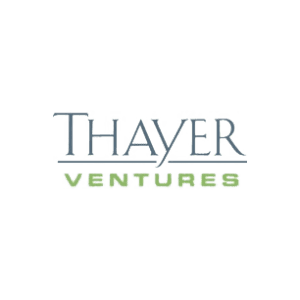
Thayer Ventures (Thayer) invests in Travel Technology.

Amazon is an international e-commerce website for consumers, sellers, and content creators.

Google is a multinational corporation that is specialized in internet-related services and products.

Oracle is an integrated cloud applications and platform services.
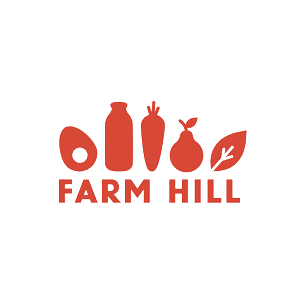
Farm Hill provides a fresh and healthy meal delivery service.
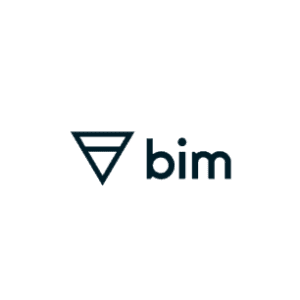
Bim App is a French restaurant table booking app that allows users to view best tables available in real time around them.

Forkspot is a dual sided platform that helps restaurants grow.

EatWith is a community that invites people to dine in homes, connect with hosts, share stories and enjoy homemade cuisine.

Pared is an on-demand tool for restaurant workers.

FreeMonee enables merchants to offer cash gifts to customers in motivating them to visit their stores.
Why Choose Silicon Valley Innovation Center?
10
Years of connecting the global business community to the Silicon Valley Ecosystem
10,000 +
600+
Silicon Valley companies that partner with us




